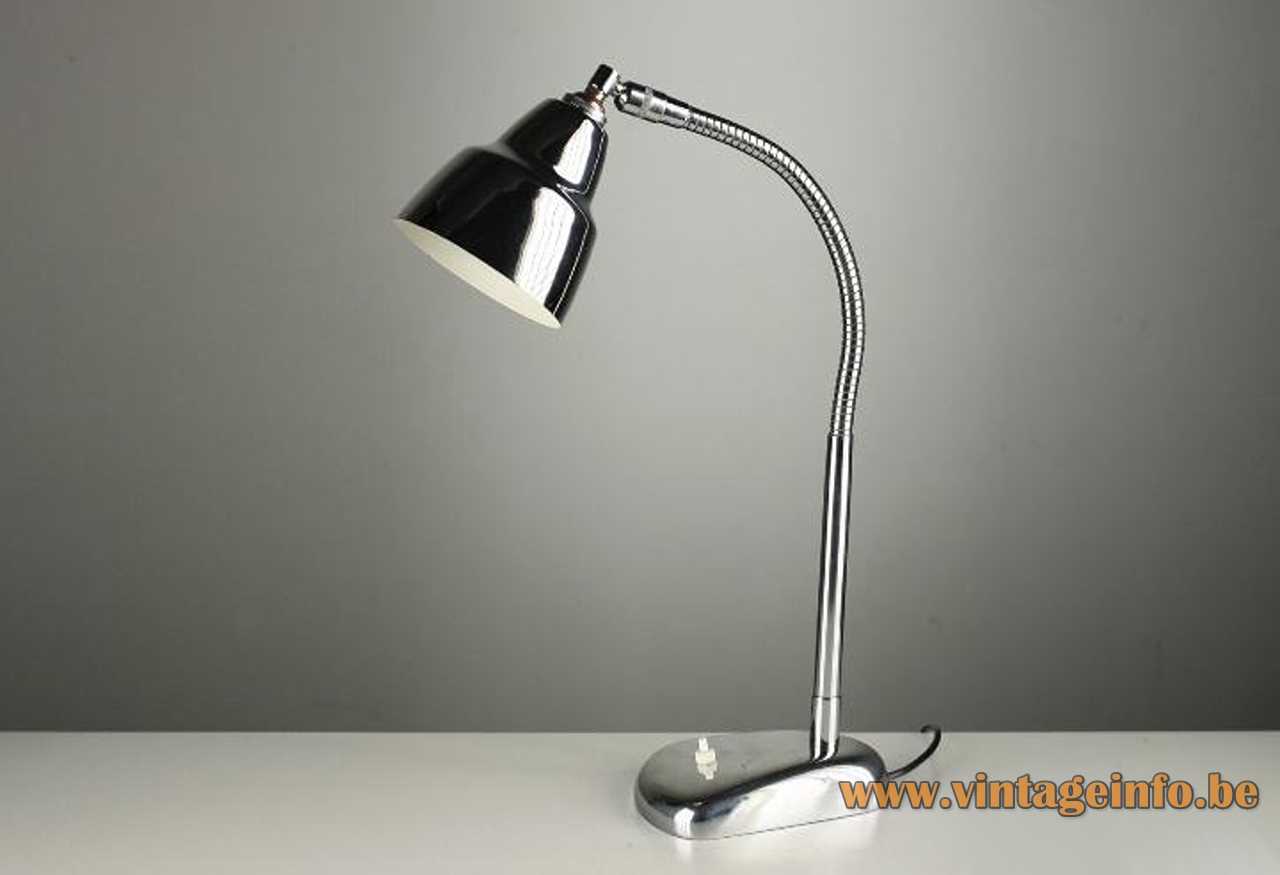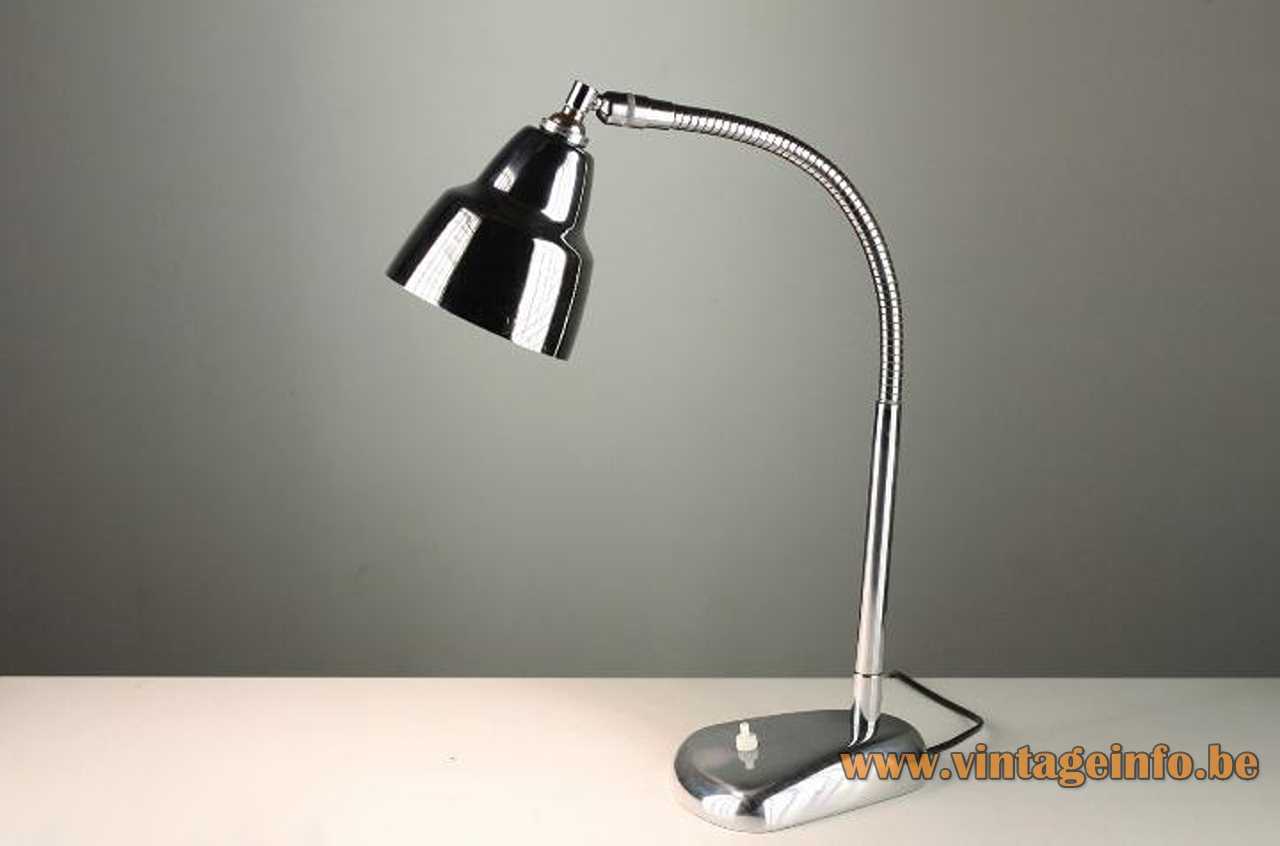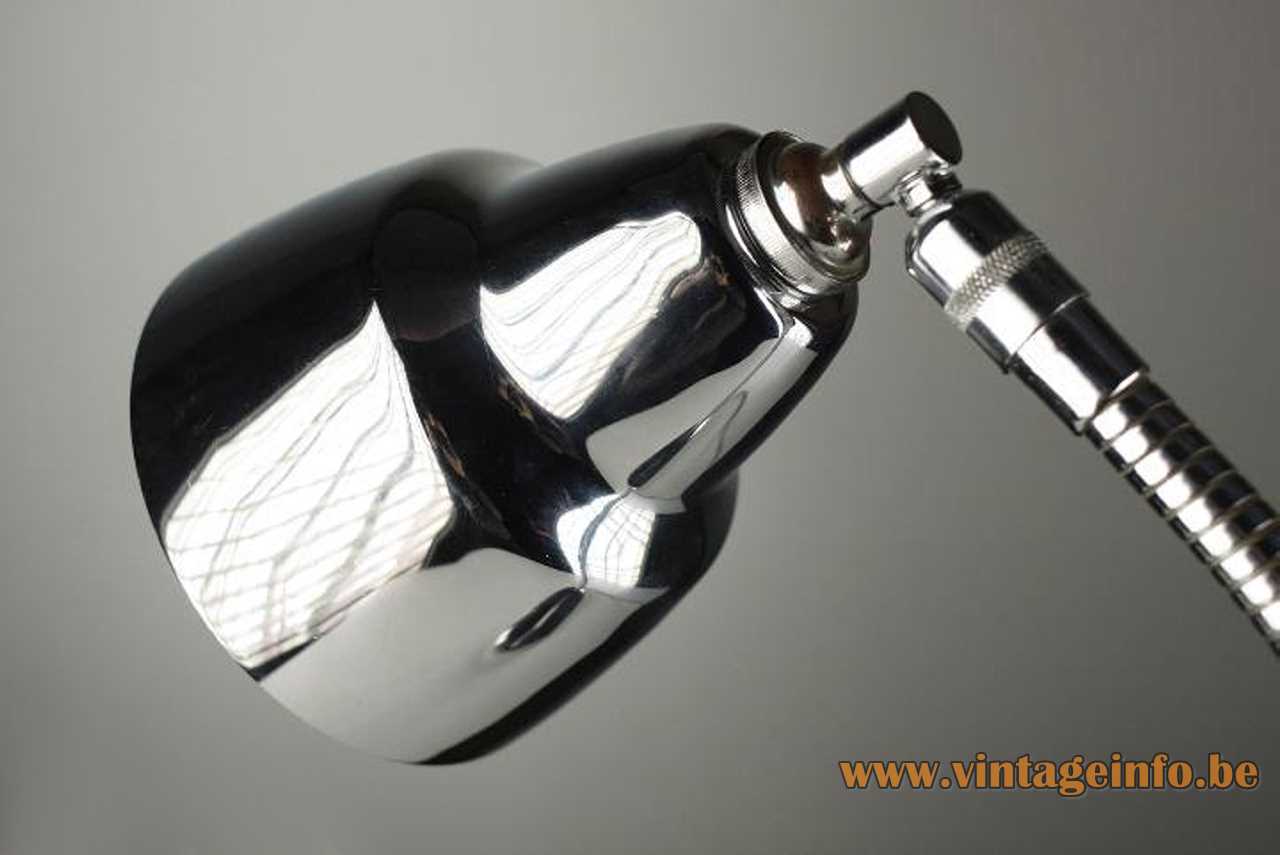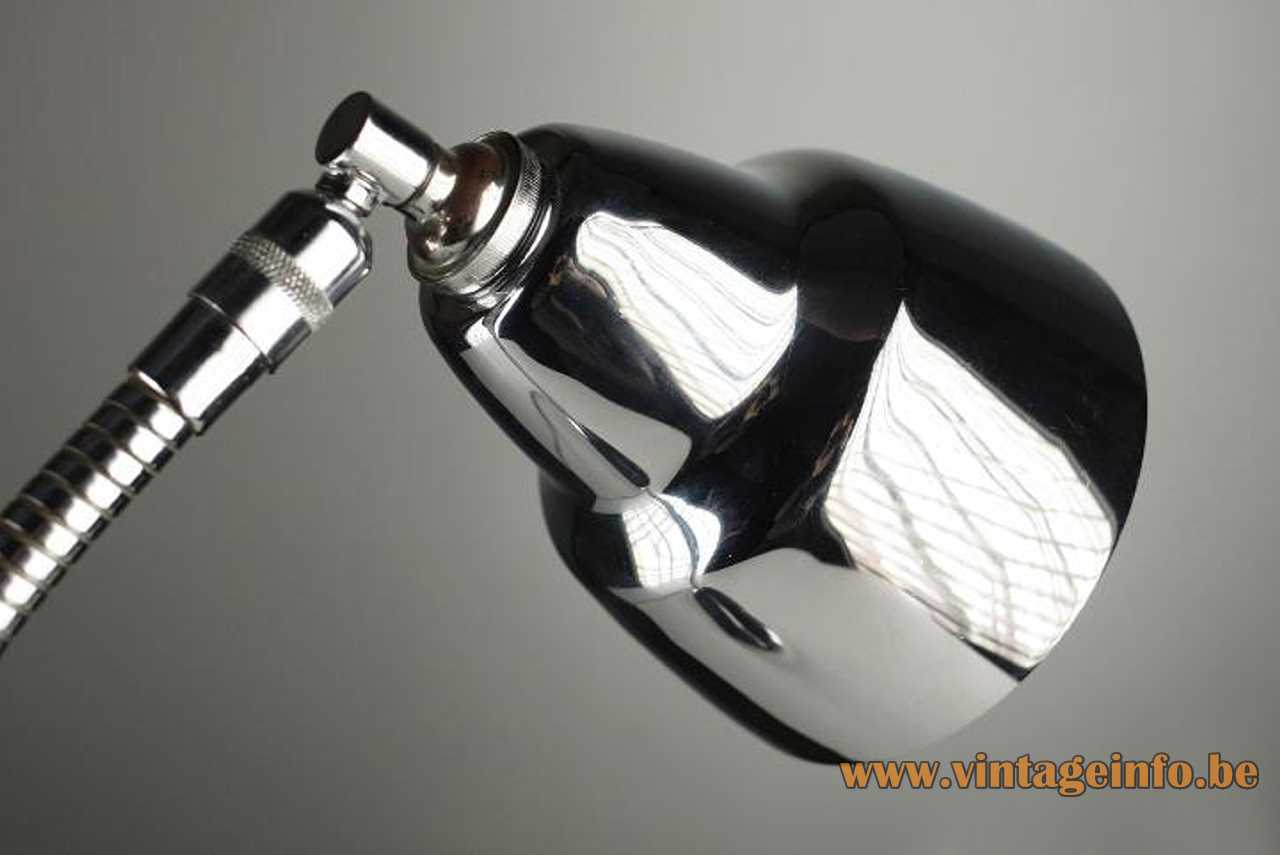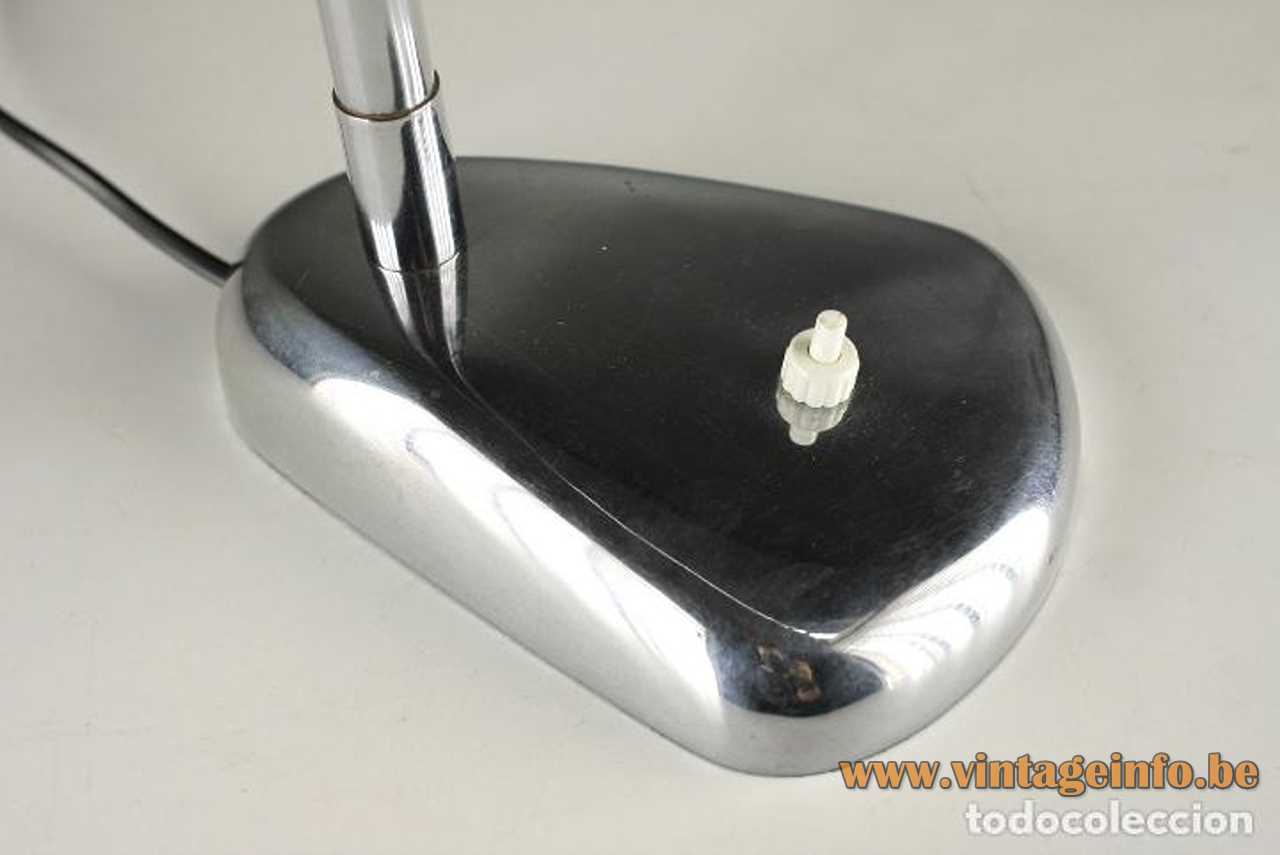Links (external links open in a new window)
US patent for the retractable office lamp
Charlotte Perriand – Wikipedia
NewJUMOConcept website – archived
Vintageinfo
Many thanks to Lluís from Eclectique Vintage for the photos and the enthusiasm.
Chrome JUMO Desk Lamp
Materials: Chromed metal (iron) base, cast iron counterweight inside. Chrome rod and gooseneck. Round conical chrome lampshade. Bakelite B22 socket.
Height: 58 cm / 22.83” – adjustable
Lampshade: ∅ 14 cm / 5.51”
Base: 18 cm / 7.08”
Electricity: 1 bulb B22, 1 x 75 watt maximum, 110/220 volt.
Any type of light bulb can be used. Not a specific one preferred.
Period: 19506, 1960s – Mid-Century Modern.
Designer: André Mounique – attributed.
Manufacturer: JUMO, Bagnolet, Paris, France – attributed.
Other versions: This chrome JUMO desk lamp exists in several varieties.
JUMO
The French JUMO company was founded in the 1940s by Yves Jujeau and Pierre and André Mounique as “Société Nouvelle des Etablissements JUMO” (New Society of JUMO Establishments). The name of the company is derived from the two first letters of each name. It was located in Bagnolet, near the capital Paris.
The lamps made by the company are never labelled, but often the engraved model number can be found in the cast iron counterweight of the base. Most of the lamps are good recognisable by certain elements specific to this brand such as the lampshades, joints and base.
JUMO lamps were designed for offices and exists in many models. Many imitations were made over the years. The JUMO lamps were a big success. Not every chrome desk lamp is a JUMO lamp.
At the end of the seventies JUMO was bought the English Concord Lighting International Ltd (founded in 1968 by the famous Rotaflex company). The name changed in JUMO Concord. The company was relocated and disappeared in the 1980s.
Lucidus Bloc
The famous Lucidus Bloc foldable lamp, designed in 1945 is officially a real JUMO lamp. It was patented in the USA by André Mounique as a “retractable office lamp”. Mounique was the main designer of the company.
The design of this lamp was protected until 1965. In the 1980s the first copies were assembled in Japan. In 2014, after having worked on prototypes for three years, the Parisian company New JUMO Concept took the lamp back into production. New steel press moulds were made for the Bakelite parts based on an original model. They named it Classique (Classic). Today (2022), the website is no longer online.
Several JUMO models are very sought after because of the attribution to certain designers of the 20th century. But all these attributions are wrong and fictional. Neither Charlotte Perriand, nor Eileen Gray have designed a lamp for the company. Historians are very clear about it.
Charlotte Perriand
Charlotte Perriand selected the model 600 by JUMO for the exhibition “Le Bazar” at the Musée des Arts decoratives (Museum of Decorative Arts ) of Paris in 1949. She never designed the lamp. No archives exists or even her biography does not mention this lamp.
Eileen Gray
The name Eileen Gray is associated with JUMO by many auction houses, but all her works are from before World War II. After the war she did not design anymore and led a reclusive life. No archive, documentation or biography shows the JUMO model 71 desk lamp in Gray’s work. Also, it is impossible to date it before 1950, considering the parts of the lamp.
Gustave Miklos
The “JUMO Lucidus Bloc” retractable desk lamp is often attributed to the Hungarian sculptor Gustave Miklos, also in well known lamp books, and nicknamed “Bolide“. Bolide is the name of a bronze sculpture he made in 1924. The lamp has some similarities. According to his biography, he never designed a lamp.
Autrefois La Lumière
For a long time, there was an excellent detailed website about the JUMO lamps and other (industrial) German and French lamps, called Autrefois La Lumière (Formerly Light), made by Alix Jaltier. Unfortunately, the website no longer exists.
